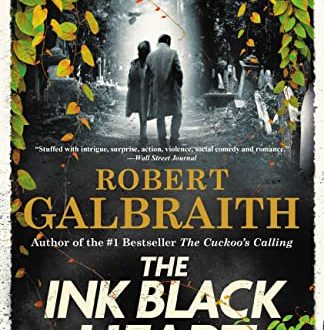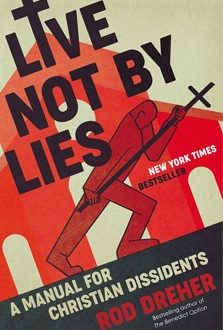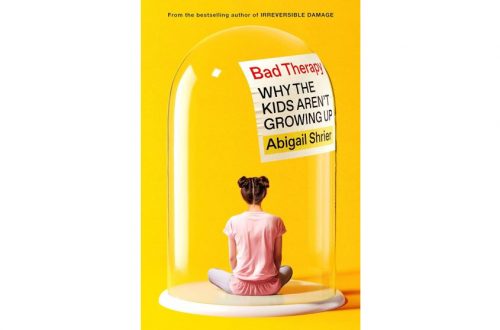 Someone just asked me on Twitter about my favorite book that I read this year. I didn’t even have to think about it because there was one book that for me was head and shoulders above anything else that I’ve seen all year. The book actually came out in 2012, but I didn’t read it until this past April. It’s The Secret Thoughts of an Unlikely Convert by Rosaria Champagne Butterfield.
Someone just asked me on Twitter about my favorite book that I read this year. I didn’t even have to think about it because there was one book that for me was head and shoulders above anything else that I’ve seen all year. The book actually came out in 2012, but I didn’t read it until this past April. It’s The Secret Thoughts of an Unlikely Convert by Rosaria Champagne Butterfield.
The book is a memoir of Butterfield’s conversion to Christ. Her story is by all accounts a traumatic one. She was a tenured faculty member at Syracuse University, and she was a lesbian who specialized in feminist studies. In other words, she was at the epicenter of an academic culture that is dead-set against all that Christianity is and stands for. But then God saved her, and her story becomes a living testimony to God’s ability to save to the uttermost.
Why do I love this book? Let me count the ways:
1. It shows that no one is beyond the reach of God’s grace. “The Lord’s arm is not too short to save” (Isaiah 59:1). We ought to expect the unexpected and believe that God can still do beyond what we dare let ourselves imagine.
2. It shows that that God still uses the foolishness of preaching to accomplish His purposes (1 Cor. 1:21). There was nothing clever or sophisticated that won her to Christ. It was the ordinary and consistent witness of Christians. The Christians in her life gave her love, hospitality, friendship, and the gospel. And God saved her. Do we expect God to do the same with our witness?
3. It blows up the caricature that Christians somehow “hate” gay people. The couple that reached out to Butterfield loved her. They really loved her and they never budged an inch about the truth of scripture and about what repentance would require for her. They were a living parable of what Paul tells us about love; love always rejoices in the truth (1 Cor. 13:6).
4. It highlights the key role that the local church plays in evangelism and discipleship. The folks who brought the gospel to Butterfield were part of a small church. The culture of that church mixed with the culture of Butterfield like oil and water. Nevertheless, the folks in the church reached out to her and loved her (and her friends!), even when they didn’t know what they were doing. It was a bumpy ride at times. But this story shows how the Lord works through us in spite of our imperfections.
5. It speaks honestly about homosexuality and gives Christians a glimpse into the realities of that particular struggle. Christians would do well to try and understand the struggles that many of their brothers and sisters have with same-sex attraction. Some of these dear folks experience complete freedom from that struggle after conversion. But many others do not. It’s an ongoing struggle, and we do well to understand the nature of their fight as best we can so that we can love and encourage them accordingly.
6. It shows us what good writing looks like. Butterfield is a gifted writer, and this book is a bona fide good read. I wish that I could write half as good as Butterfield does. I hope that Secret Thoughts is the first of many books that we get from her.
I could go on and on about this book, but I’ll leave it there for now. If you haven’t read this book, I highly recommend it. It was the best I read this year.




17 Comments
Bob Wilson
I’ve seen some of her videos and she seems to be a fascinating person.
Something I can’t help wondering about though–she seems to do much more than simply tell her story. She also instructs her audience about gay people and admonishes them, telling questioners “not to tell ghost stories about gay people.” She even guides her audiences on how to fully embody the biblical spirit toward gays.
In short, she teaches her listeners. Doesn’t this violate patriarchy? Isn’t she violating Paul’s command that women can never teach men?
Esther O'Reilly
I think it’s funny that you’re criticizing those comments for the meta reason that she might be violating gender roles. That’s missing the forest for the trees IMO, when there’s plenty to criticize in the content of the comments themselves. Someone should have pressed her “What exactly do you mean by ‘ghost stories?’ Be specific. Use examples.” The way she just patronizingly laughed off the guy who asked an honest question about how to deal with a lesbian couple who’s openly showing affection in church really rubbed me the wrong way. She’s admitted that she never understood the instinctive, gut-level sense that homosexual attraction is unnatural and wrong, but she won’t recognize that as, in an important sense, a limitation in herself. And she never admits how rude it was for her to bring her male friend in drag to church with her, when that friend wasn’t even coming as a repentant sinner seeking forgiveness. In fact, she’s almost pleased with herself for having created an incident that generated complaints from families in the church. Instead of doing a facepalm in retrospect, like “What in the world was I thinking?” she sees it as an opportunity to lecture Christian parents who “aren’t doing their kids any favors” by sheltering them from the more perverse sexual sins.
And don’t even get me started on how she insists that her post-modern colleagues in queer theory cared about the text and were upholding academic integrity in their own way. That entire section is just cringeworthy for anyone who knows something about the academy.
Bob Wilson
She strikes me as being very genuinely concerned that gay people–even non-repentant gay people– be treated as no more deserving of harsh unloving condemnation than those guilty of more socially acceptable sin.
Beyond that, as an atheist, I am in no position to comment on her theology. I was just curious about the patriarchy question. To my untrained ears, she is definitely her audience on scriptural matters.
Bob Wilson
Sigh, missing word above. Last sentence should be:
…definitely instructing her audience on scriptural matters.
Esther O'Reilly
Her theology of sin isn’t as consistent as it could be. On the one hand she wants to say that all sins are equal. On the other hand, she slips into the “worse sin,” “better sin” language as long as the Religious Right ends up in the “worse sin” camp.
AFAIK she’s not a patriarchalist. She’s a complementarian. So that makes a difference.
Bob Wilson
I guess it’s a matter of perspective. Since I’m secular and liberal, from my point of view, she’s moved into not just another world, but another solar system. To my outsider’s ears, her criticism of some conservative Christians is quite mild, offered entirely from within her new understanding of homosexuality as sinful, and very appropriate given where she’s come from.
Having been part of the gay community, she is in a unique position to remind her new community that gays (even the unrepentant ones!) are still their family members and should be welcomed into their homes and churches. Parents and churches who wouldn’t throw out a child caught going too far with an opposite sex lover are wrong to treat a gay child more harshly.
I’m genuinely pleased that so many conservative Christians are taking her message to heart. It’s certainly not my perspective on homosexuality, but I respect what she’s saying.
Esther O'Reilly
Sexual immorality is a big deal across the board in evangelical circles. For a Christian teen to lose his/her virginity is huge, regardless of whether it’s hetero or homo. Many books have been written on the dangers and temptations of heterosexual immorality. So I think you’d have to be pretty out-of-touch with evangelical culture to say that they give “ordinary” sexual sin a pass.
Lauren Bertrand
Esther, Evangelical circles have always given certain sins a pass. Gluttony is the elephant in the room (pun intended) that absolutely no one seems to talk about, even when it may be the primary culprit as to why average longevity in Bible Belt states is less than their northern counterparts.
And while I’m certain some families are as punitive toward their children caught in heterosexual sin, we certainly don’t hear stories about homeless heterosexual fornicators looking for shelter after being thrown out of their homes. Media bias? Perhaps. But something would tell me the liberal media would have a field day with expelled young hetero- fornicators as much as it does with gay homeless kids.
Esther O'Reilly
Bob was specifically drawing a contrast between hetero- and homosexual fornication, so I was specifically addressing that contrast. As for the old liberal chestnut of gluttony—in a word, puh-leeze.
Lauren Bertrand
If “puh-leeze” and “liberal chestnut” are the best you have to offer, then I guess that means you raise the white flag?
Esther O'Reilly
It means that I would write a long, detailed reply explaining just how shallow and cliched your reasoning is, but I’m a little tired of doing that after the bajillion other times I’ve seen people spout the same shallow cliches. In other words, you’re not worth arguing with.
Bob Wilson
Esther,
I never meant to say that heterosexual sin was given a complete pass by Christians, just that for understandable human reasons, gay sins have been and still are treated as something uniquely unholy.
(And my understanding of evangelical culture is only as an outside observer. I live in Texas and read what I can. But I would certainly defer to you on any particulars.)
Despite the changes in the public sphere toward homosexuality, I think many (most?) people have a visceral revulsion of gay sex and therefore of gay people. And by no means are all these people religious. Recently, a man told me, hypothetically, that he would “never have a gay son in his house”. I pointed out that I know of no legal way to throw a 15 or 16 year old out on the street. His chilling reply was he didn’t care. The kid would be out. This man was not at all religious.
This is why I think Rosaria’s message, as I understand t, is so important. To witness that the gay people she once knew are still human, caught up in sin, yes, but not uniquely sinful or dangerous. And of course, there is the profoundly practical point of her witness. The man who brought her to God did so first and foremost by treating her as a friend–for years, apparently. Has he shunned her as a pervert, a sodomite, a person unfit to enter his house, he never would have changed her heart.
(Of course, I don’t think homosexuality is wrong, but that’s a separate issue. It’s not for me to tell religious people what is sinful. That’s a debate for believers.)
Esther O'Reilly
Theologically speaking, we can measure sexual sin on a scale, even though all sin culminates in the same act of turning away from God that leads to Hell. We can even do this with heterosexual sin only. Fornication is a sin. Adultery is worse. Rape is worse still. And so forth. If we compare sins that are similar except for the respect that one is hetero- vs. homosexual, the homosexual one is worse because it violates the natural order.
However, Rosaria is correct in that no homosexual is past redemption just as no sinner is past redemption. Furthermore, the pastor and his wife who reached out to her definitely did right to exemplify the gospel through their witnessing. Unfortunately Rosaria uses them as a template for exactly how hospitality should look across the board, instead of taking into account pertinent factors like the fact that their children were grown and gone. That probably seems like nit-picking from your perspective, but it’s important for other Christians to understand. From your perspective, I’m glad if Butterfield can give you some insight into Christianity, as she is still an orthodox believer with an honest story of conversion.
buddyglass
Presumably she knows something of the academy.
Barbara Jackson
Hi, Mr. Wilson. I’m from a sister denomination with very similar complementarian stance as that of which Mrs. Butterfield is a part. There are various interpretations within complementarianism, and one that I think applies in this situation is that she is not teaching as one with authority, and in all things she is accountable to her church elders for these things so they would be the ones she would answer to in that accord. She is speaking and applying scriptural truths as she expresses her testimony and gives helpful tips from the “inside” (so to speak) as to how one might best reach those who are still enslaved to what she was once. So, while she is certainly teaching people something in that sense, she is not in a position of teaching/expositing the scripture as one with scriptural shepherding authority over the people she is talking to.
Also, many times she is speaking in secular arenas, which is completely different scripturally speaking than teaching a congregation of believers. From what I have seen, she gives the same talk to both but may do what any good speaker does, and takes into account who her audience is and tailors it accordingly.
One does not have to agree with her on everything; she is no more inerrant and infallible than the rest of us. But she is ultimately accountable to her elders, and as she does honestly strive by Grace to be faithful to the Word of the God who saved her, the rest of us are free to love her too and to be thankful for her witness in a VERY hostile arena and to pray for her accordingly.
Grace and peace to you, sir.
James Giordano
Just found this video of a lecture by Rosaria Butterfield – Sexuality, Identity, and the Doctrine of Repentance: My Train Wreck Conversion
Pingback: